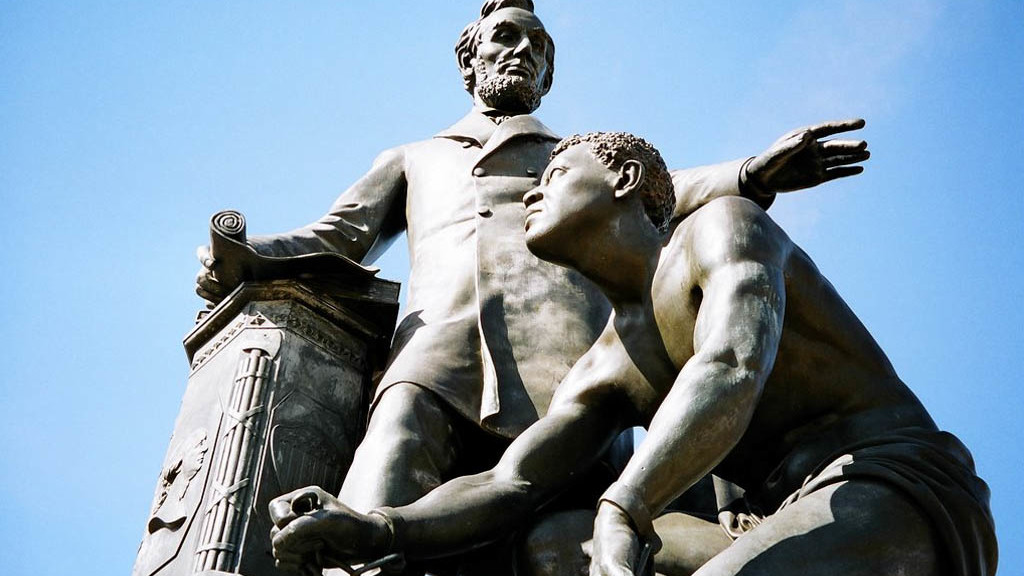The city of San Fernando, Pampanga is famous worldwide because of what people here do during Holy Week. There are more devotees who crucify themselves and beat themselves up (self-flagellation) all over the city than anywhere else in the world. I would suppose that there were even more devotees who crucified themselves and beat themselves up decades ago. They have an amazing zeal for the Lord! But sad to say, not according to knowledge.
Zeal
Although strongly discouraged by the Catholic Church, but still there were a lot of devotees once again last Good Friday, who crucified and beat themselves up—for various reasons: panata (vow), thanksgiving, an appeal to God for something or maybe a ticket to heaven. As to sincerity, they are very sincere. There’s no doubt about it. As to correctness of practice, I’m reminded of Romans 10:1-2 where it says, “Brothers, my heart’s desire and prayer to God for the Israelites is that they may be saved. 2 For I can testify about them that they are zealous for God, but their zeal is not based on knowledge.”
Knowledge
The Old Testament prophet Hosea also had the same thing to say in Hosea 4:6, “my people are destroyed from lack of knowledge.” It is really sad to know that there are a lot of needless and wrong practices that our people are doing but they do it anyway because they believe they are doing what is right. Additionally, I heard on TV news that some devotees do it because it has become part of their tradition to do it regularly! It’s really shocking that some allow themselves to be nailed to the cross every year!
But the Lord does not want us to stay in the dark about the truth on salvation. God said in, 1 Timothy 2:3-4, “This is good, and pleases God our Savior, 4 who wants all men to be saved and to come to a knowledge of the truth.” God wants us to know the truth about salvation!
Despising the Lord’s Sacrifice
Without realizing it, these devotees may actually be despising the sacrifice of the Lord Jesus Christ on the cross some 2,000 years ago. Why do I say that? Because, when they do crucify themselves, it’s like they’re saying to the Lord that his sacrifice is not enough. Christ’s sacrifice on the cross is insufficient to cover for all their sins—that’s what it implies. They think that they need to add their own personal sacrifice by beating themselves up or crucifying themselves in addition to what Christ had already done on the cross. They think that by doing that, God would be pleased. But God is a loving God and he is not after blood. God says, “I will have mercy, and not sacrifice” (Matthew 9:13).
Same Thing in Colossae
This is exactly the same situation we find in Colossae during the time of the apostle Paul. There was a Colossian heresy that spread in the local church of Colossae. The apostle Paul heard about the heresy so he wrote them a letter—an epistle. These “heretics” claimed that Christ was not sufficient for salvation. These “heretics” claimed that the Colossian Christians needed to add some other supplements so that they will attain salvation like keeping the Sabbaths, new moons and other rituals. These misguided Colossians were not denying Christ. They were actually Christians too but were being forced by other fellow Jewish Christians to also keep the law of Moses. What they were claiming was that Christ was insufficient for salvation. Some other requirements or rules were needed in order to be saved. And Paul was alarmed so he warned them.
Fullness of God in Christ
Paul argued in Colossians 1:19-20: “For God was pleased to have all his fullness dwell in him, 20 and through him to reconcile to himself all things, whether things on earth or things in heaven, by making peace through his blood, shed on the cross.”
Christ was complete. Christ was all that they needed. They needed no other supplement to be saved. Everything that’s needed to be done in order for us to be saved has already been done by Christ. Through Christ, God had planned all along to reconcile the whole of humanity and all of creation to himself. Through his blood shed on the cross, he made peace.
Christians Given Fullness through Christ
God is capable and able to wipe out all of our sins. Colossians 2:9-10 says, “For in Christ all the fullness of the Deity lives in bodily form, and you have been given fullness in Christ, who is the head over every power and authority.” That is, Christians are complete and full in Christ. They were given fullness in Christ. There’s nothing more that we need other than the Lord Jesus Christ for our salvation.
Benefits of Being in Christ
In Colossians 1:11-17 it says, “In him you were also circumcised, in the putting off of the sinful nature, not with a circumcision done by the hands of men but with the circumcision done by Christ, 12 having been buried with him in baptism and raised with him through your faith in the power of God, who raised him from the dead. 13 When you were dead in your sins and in the uncircumcision of your sinful nature, God made you alive with Christ. He forgave us all our sins, 14 having canceled the written code, with its regulations, that was against us and that stood opposed to us; he took it away, nailing it to the cross. 15 And having disarmed the powers and authorities, he made a public spectacle of them, triumphing over them by the cross. 16 Therefore do not let anyone judge you by what you eat or drink, or with regard to a religious festival, a New Moon celebration or a Sabbath day. 17 These are a shadow of the things that were to come; the reality, however, is found in Christ.”
These verses are packed with information. Take note of the following: 1) the Christian Colossians were circumcised in Christ, 2) they were buried with Christ in baptism, 3) raised with Christ—resurrected, 4) God made them alive in Christ and, 5) through Christ they were forgiven of all their sins. God made them alive—it was all God’s doing.
Since Christians are in Christ, they have been implicated in whatever the Lord did in behalf of humanity. Colossians 3:11 says, “Here there is no Greek or Jew, circumcised or uncircumcised, barbarian, Scythian, slave or free, but Christ is all, and is in all.”
Christ is our Substitute and Representative. He lived and died on our behalf. He assumed all that was supposed to be our penalty for sins which we committed. He assumed it on our behalf. Christ is our “all” and is in all. He “wants all men to be saved” (1 Tim. 2:3-6).
This is absolutely for everyone—all of humanity and all of creation. Not only is God’s plan to reconcile all of humanity to himself but also the environment, all of creation too. There will be a new Jerusalem, coming down from heaven. There will be a new heaven and a new earth. There will be peace. There will be order, when Christ restores all things to himself. Acts 3:21 says, “He must remain in heaven until the time comes for God to restore everything, as he promised long ago through his holy prophets.”
Qualified, rescued, brought, redeemed, forgiven
Colossians 1:10-14 says, “And we pray this in order that you may live a life worthy of the Lord and may please him in every way: bearing fruit in every good work, growing in the knowledge of God, 11 being strengthened with all power according to his glorious might so that you may have great endurance and patience, and joyfully 12 giving thanks to the Father, who has qualified you to share in the inheritance of the saints in the kingdom of light. 13 For he has rescued us from the dominion of darkness and brought us into the kingdom of the Son he loves, 14 in whom we have redemption, the forgiveness of sins.”
Who is Christ Anyway?
In Colossians 1:15-17 it says, “He is the image of the invisible God, the firstborn over all creation. 16 For by him all things were created: things in heaven and on earth, visible and invisible, whether thrones or powers or rulers or authorities; all things were created by him and for him. 17 He is before all things, and in him all things hold together. 18 And he is the head of the body, the church; he is the beginning and the firstborn from among the dead, so that in everything he might have the supremacy.”
Through Christ we have redemption, forgiveness of sins. Christ being Creator of all things, his life is worth more than all of his creation. His sacrifice is more than sufficient to pay for all our sins past, present and future. No need for other supplements. Colossians 2:8-10 says, “See to it that no one takes you captive through hollow and deceptive philosophy, which depends on human tradition and the basic principles of this world rather than on Christ. 9 For in Christ all the fullness of the Deity lives in bodily form, 10 and you have been given fullness in Christ, who is the head over every power and authority.”
Yes, we have been given fulness in Christ! No need for other requirements or supplements in order to be saved! What wonderful truth!
Buried with Christ
Colossians 2:12-17 says, “having been buried with him in baptism and raised with him through your faith in the power of God, who raised him from the dead. 13 When you were dead in your sins and in the uncircumcision of your sinful nature, God made you alive with Christ. He forgave us all our sins, 14 having canceled the written code, with its regulations, that was against us and that stood opposed to us; he took it away, nailing it to the cross. 15 And having disarmed the powers and authorities, he made a public spectacle of them, triumphing over them by the cross. 16 Therefore do not let anyone judge you by what you eat or drink, or with regard to a religious festival, a New Moon celebration or a Sabbath day. 17 These are a shadow of the things that were to come; the reality, however, is found in Christ.”
We died with Christ
In Colossians 2:20-21 it says, “Since you died with Christ to the basic principles of this world, why, as though you still belonged to it, do you submit to its rules: 21 ‘Do not handle! Do not taste! Do not touch!'”
Having been raised with Christ, some Christian reminders
Colossians 3:1-14 says, “Since, then, you have been raised with Christ, set your hearts on things above, where Christ is seated at the right hand of God. 2 Set your minds on things above, not on earthly things. 3 For you died, and your life is now hidden with Christ in God. 4 When Christ, who is your life, appears, then you also will appear with him in glory.”
Put to Death the Sinful Nature
Colossians 3:5-11 “Put to death, therefore, whatever belongs to your earthly nature: sexual immorality, impurity, lust, evil desires and greed, which is idolatry. 6 Because of these, the wrath of God is coming. 7 You used to walk in these ways, in the life you once lived. 8 But now you must rid yourselves of all such things as these: anger, rage, malice, slander, and filthy language from your lips. 9 Do not lie to each other, since you have taken off your old self with its practices 10 and have put on the new self, which is being renewed in knowledge in the image of its Creator. 11 Here there is no Greek or Jew, circumcised or uncircumcised, barbarian, Scythian, slave or free, but Christ is all, and is in all.”
Indicative and Imperative
Since God has already reconciled us, it is just but right that in return we love, obey and follow him. We don’t obey in order to be saved, but rather we obey God and follow his commands because we love him. We obey God because it is the right thing to do. It is but right that we respond to God’s love with loving him in return.
Colossians 3:12-15 “Therefore, as God’s chosen people, holy and dearly loved, clothe yourselves with compassion, kindness, humility, gentleness and patience. 13 Bear with each other and forgive whatever grievances you may have against one another. Forgive as the Lord forgave you. 14 And over all these virtues put on love, which binds them all together in perfect unity. 15 Let the peace of Christ rule in your hearts, since as members of one body you were called to peace. And be thankful.”
The Meaning of Resurrection Sunday
This is what Resurrection Sunday should mean to us. It’s a time when 2,000 years ago, The Son of God became human, he was born, he lived, he was crucified, he was buried, he rose, he was resurrected, he is alive and we have all been reconciled and beloved in Him. We have been implicated in what he has done as our Substitute and Representative. We have fullness in Christ! He is all that we need!
Let us therefore carry on with the Christian journey with this in mind. We have hope, we have love, we are victorious because we are in Christ. Our salvation is secure. Let us continue to persevere and hope and wait until the second coming of the Lord. Brethren, God loves you, you are in Jesus Christ. And we can live a happy and abundant life in Jesus Christ even right now even as we wait and hope for a wonderful future.





